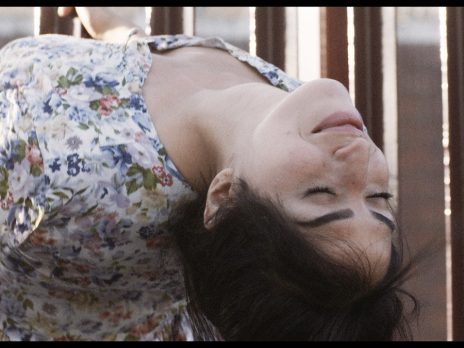JIBRIL
Feature Film, DE 2018, Farbe, 83 min., OmeU
Diagonale 2019

Director, Script, Editor: Henrika Kull
Cast: Susana Abdulmajid, Malik Adan, Doua Rahal, Emna El-Aouni, Regina Schulte am Hülse, Dikra Rahal, Tobias Müller-Monning, Osama Hafiry, Inaam Wali, Eliana Moral-Falke, Abdul Ahmin Kamouss
Camera: Carolina Steinbrecher
Location Sound: Louis Marioth, Tarek Soltani
Music: Dascha Dauenhauer
Sounddesign: Niklas Kammertöns
Production Design: Theresa Reiwer
Costumes: Wiebke Lebus
Producers: Henrika Kull, Sophie Lakow, Carolina Steinbrecher
Production: Filmuniversität Babelsberg KONRAD WOLF (DE)
Maryam and Jibril see each other for the first
time at a party and connect instantly. Nonetheless,
they don’t meet again until a year later: Maryam is
meant to bring a package to the prison. The recipient
is Jibril, who has meanwhile been incarcerated.
The joy of seeing one another again is great,
but the conditions are not the best for a romance.
A modern fairytale about ideals and projections,
expressively and thrillingly filmed.
The thrills and illusions of love are first celebrated,
then painfully exposed, in Jibril, Henrika Kull’s
thought-provoking tale centered around a dynamic,
life-embracing Arab woman living in Germany. The
fact that her love story unfolds with a young man who
is serving time in prison only intensifies the universal
lesson that love is blind and we rarely see our beloved
as she or he really is.
(Deborah Young, Hollywood Reporter)
The filmmaker builds their relationship through
a type of observation that would have the vibe of a
documentary if it weren’t for some handsome technical
contributions (especially commendable is
the work of DoP Carolina Steinbrecher), and leaves
the conclusions up to the viewer. In between their
encounters over the not-so-closely supervised table
in the prison’s visiting room, we see them lead their
separate lives, and this is where Kull (rightly) chooses
to indicate what drives the development of their feelings.
What emerges as the main point is how much a
relationship is a matter of projection – particularly in
circumstances that further limit the way one sees the
other person.
(Vladan Petkovic, Cineuropa)


